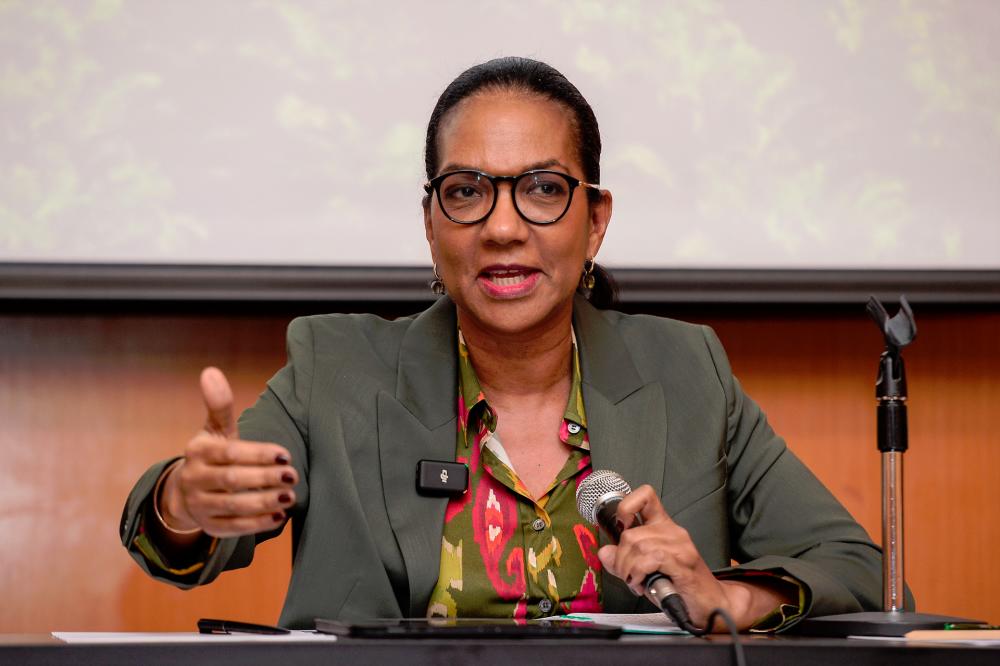KUALA LUMPUR: The Democratic Republic of Congo-based (DRC) company Plantations et Huileries du Congo (PHC) hopes to collaborate with Malaysian palm oil players for business opportunities. PHC is the largest industrial palm oil producer in the DRC.
PHC CEO and director general Monique Gieskes (pic) said Malaysian palm oil trees were from the Yangambi ML161 seedling, which originated from the Yangambi seedling native to the DRC. Now, Gieskes said that PHC wants to collaborate and partner with Malaysian players in developing new seedlings.
She explained that PHC’s research centre has been developing its oil palm breeding programmes and possesses genetic sources which are available for development. However PHC lacks the expertise to expand its research programmes further. Hence, the company is inviting interested Malaysian palm oil players to partner with it to advance its research.
She pointed out two white seedlings, Albo-Nigrescens and Albo-Virescens, from its research, could be of interest to Malaysian oil palm companies. Currently, Malaysia planters use Nigrescens and Virescens seedlings, which has a high carotene content, giving it a red or orange-red oil.
In terms of production, Gieskes noted that the palm oil produced by Malaysia has to undergo a bleaching process to whiten its oil output. However, she said that since the two seedlings produces white oil, oil produced from Albo-Nigrescens and Albo-Virescens seedling would eliminate the bleaching process.
“The palm oil seelings are white, there’s almost no carotene which means that in the refinery process, you don't need to bleach it anymore. You can skip one process that could contribute to cost saving. It is also highly potent in vitamin E.
“At the moment, nobody (has) produced it on an industrial scale. We have diverse and unique genetic material that has not been looked into or developed. Since Malaysia has top technology, this deserves to be looked at in detail (through close collaboration).
“We can contribute what we have, maybe Malaysia will take it and bring it to a larger scale,” she told SunBiz.
She said that PHC has invested about US$50 to US$60 million to Malaysia since 2017, or up to US$10 million per year, in terms of equipment purchases for its three mills.
Moving forward, PHC will continue to purchase palm oil production equipment from Malaysia and will likely set up a purchasing or procurement office here.
The company is open to talking with investors and palm oil players as it believes that the DRC has huge potential (to grow) its palm oil industry.
“We are looking for investors to invest in our palm oil plantations and the full value chain because it's a big opportunity. We have a lot of people (consumers and labour), a lot of land, good internal policy for investment,” added Gieskes.









